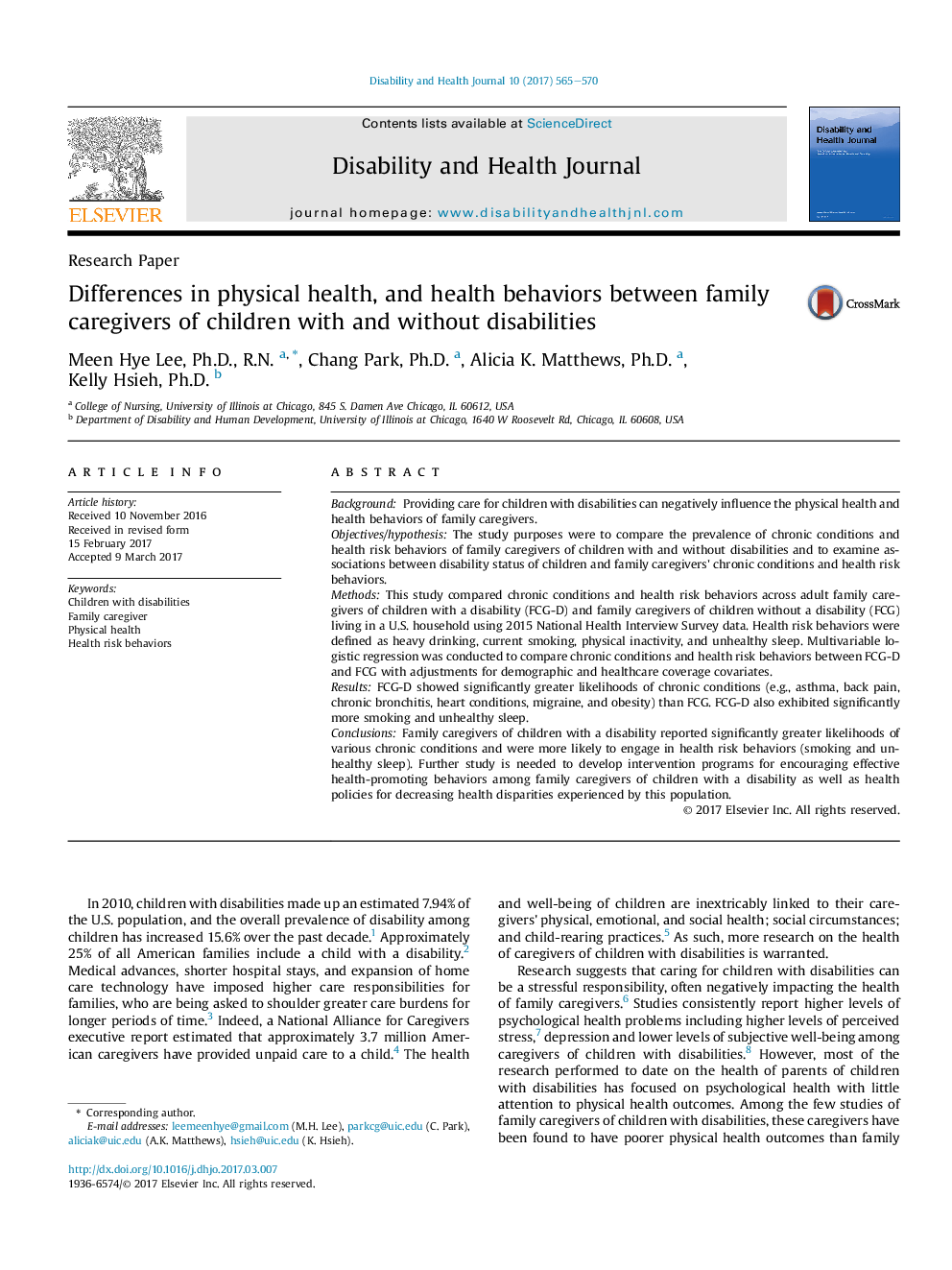| Article ID | Journal | Published Year | Pages | File Type |
|---|---|---|---|---|
| 5723172 | Disability and Health Journal | 2017 | 6 Pages |
BackgroundProviding care for children with disabilities can negatively influence the physical health and health behaviors of family caregivers.Objectives/hypothesisThe study purposes were to compare the prevalence of chronic conditions and health risk behaviors of family caregivers of children with and without disabilities and to examine associations between disability status of children and family caregivers' chronic conditions and health risk behaviors.MethodsThis study compared chronic conditions and health risk behaviors across adult family caregivers of children with a disability (FCG-D) and family caregivers of children without a disability (FCG) living in a U.S. household using 2015 National Health Interview Survey data. Health risk behaviors were defined as heavy drinking, current smoking, physical inactivity, and unhealthy sleep. Multivariable logistic regression was conducted to compare chronic conditions and health risk behaviors between FCG-D and FCG with adjustments for demographic and healthcare coverage covariates.ResultsFCG-D showed significantly greater likelihoods of chronic conditions (e.g., asthma, back pain, chronic bronchitis, heart conditions, migraine, and obesity) than FCG. FCG-D also exhibited significantly more smoking and unhealthy sleep.ConclusionsFamily caregivers of children with a disability reported significantly greater likelihoods of various chronic conditions and were more likely to engage in health risk behaviors (smoking and unhealthy sleep). Further study is needed to develop intervention programs for encouraging effective health-promoting behaviors among family caregivers of children with a disability as well as health policies for decreasing health disparities experienced by this population.
